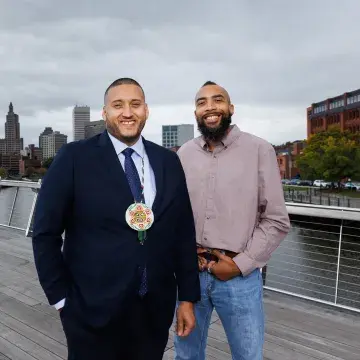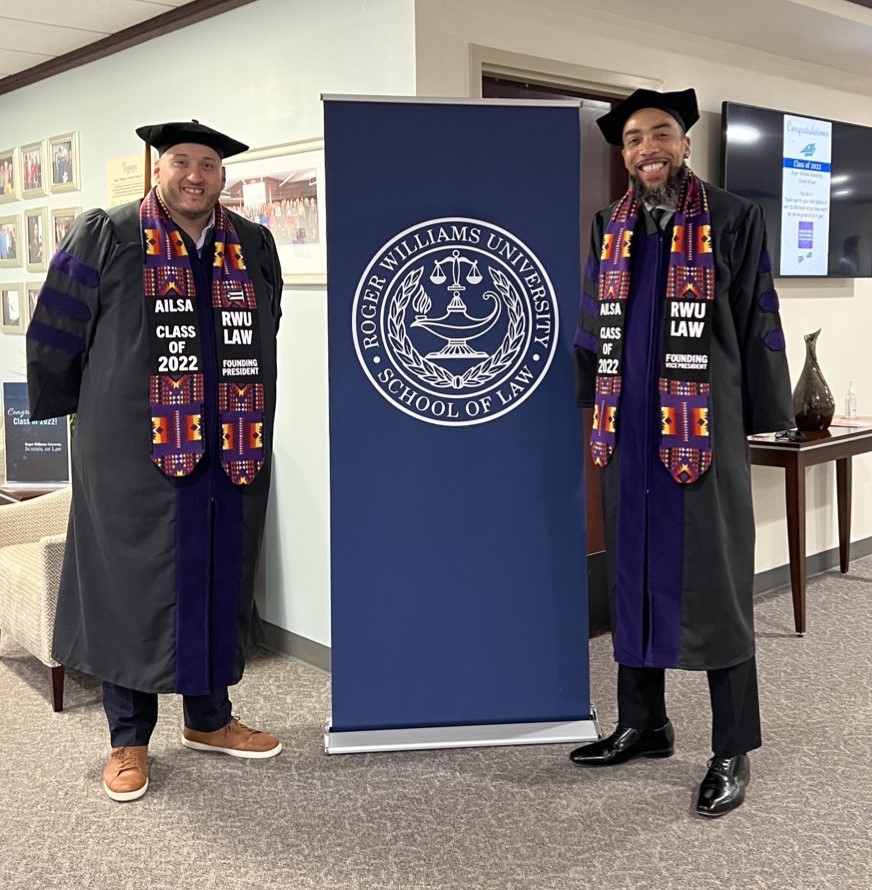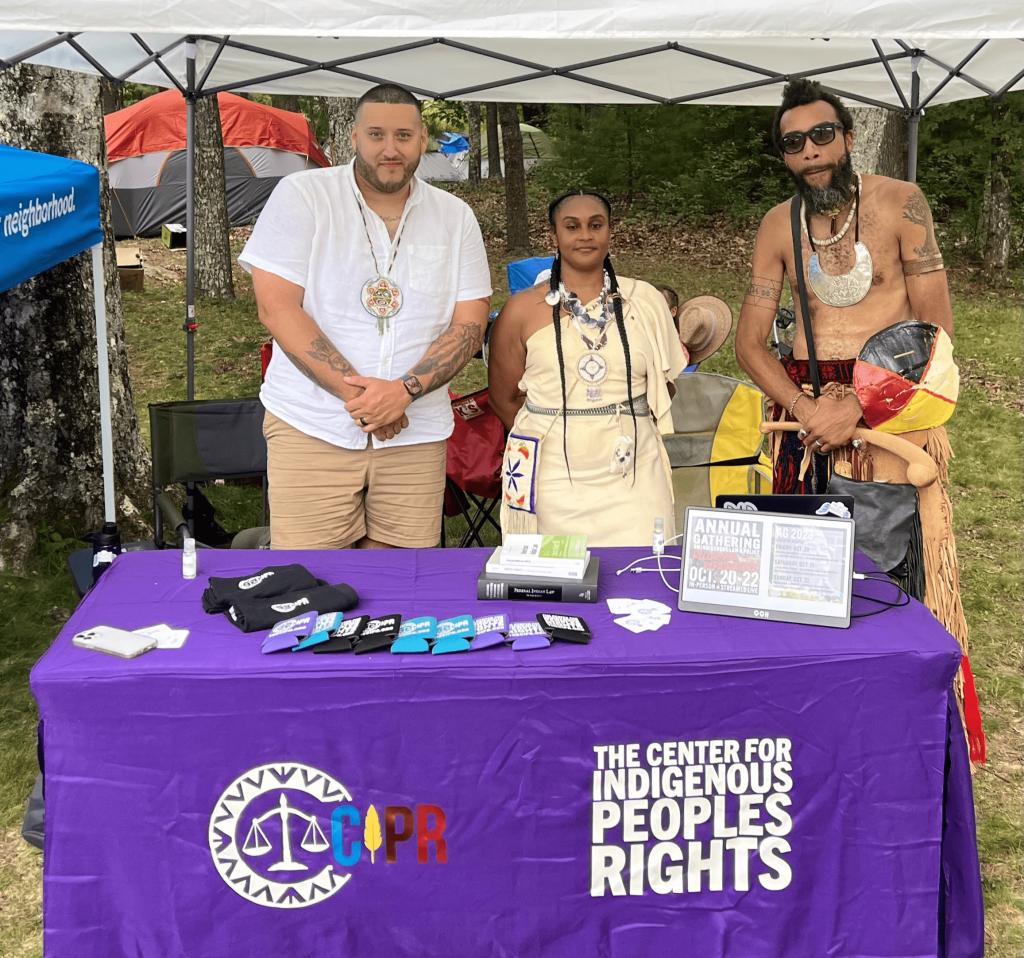Elevating Conversations Around Indigenous Peoples’ Rights

Taino J. Palermo and Raymond Two Hawks Watson, RWU Law Class of 2022
Juris DoctorAs cofounders of the Center for Indigenous Peoples Rights (CIPR), Taino Palermo L’22 and Raymond Two Hawks Watson L'22 are working together to change lives by ensuring justice and equity for Indigenous peoples. CIPR is the East Coast’s first and only pro bono law and policy center focused on the rights of Indigenous peoples and nations, providing free legal services, policy support, and critical nation-building technical assistance to help them exercise their inherent rights.
Watson and Palermo met when both were involved with community work in Providence helping local, non-federally recognized Indian tribes understand and obtain their rights. The pair also bonded over their own Indigenous heritage: Watson is a member of the Mashapaug Nahaganset Tribe, and Palermo is a member of the Baramaya Guainia yukayeke of Puerto Rico.
“In our community work, the main issue we came up against was the notion that if you’re not federally recognized by the U.S. government, you’re not a ‘real’ Indian tribe, and you’re not a ‘real’ Indian,” says Watson, a community activist and policy director for CIPR. “There’s only one federally recognized tribe in Rhode Island, which leads to a lot of people feeling excluded from their culture and not accessing all the rights available to them.”
When they couldn’t find anyone with the right legal knowledge to help them and the local Indigenous tribes, Palermo and Watson decided they’d just go to law school themselves. They began earning their Juris Doctor degrees at RWU Law in 2019, viewing their education through the lenses of their respective indigeneities. They discovered an entire world of law and policy available to Indigenous peoples, regardless of a tribe’s federal recognition status—but the issue was that not many Indigenous communities, especially on the East Coast, really knew about it or had access to it.
“There was no full-service, pro bono legal or policy center for Indigenous rights east of the Mississippi,” says Palermo, adjunct professor at RWU Law and legal director for CIPR. “At RWU Law, we began asking faculty questions around Indian law and were met with curiosity and openness.”

With this interest and traction, Palermo and Watson—along with support from visiting professor and tribal justice expert James D. Diamond—founded CIPR in 2022. CIPR serves to not only supply much-needed legal assistance to Indigenous peoples and tribes in Rhode Island and beyond, but also as an educational resource for local, state, and federal policymakers.
“Some of this appetite for better supporting the needs of BIPOC [Black, Indigenous, and People of Color] folks began in 2020 with the murder of George Floyd,” says Palermo. “In founding CIPR, we folded into that social climate and momentum, and it was the right timing with a student body so connected to social justice and looking for vehicles to support and advocate for those kinds of issues.”
As the policy director, Watson leverages his sizable talent in research and writing, as well as strategically thinking about how to move policy forward, convene the right individuals, and harness relationships to turn bills into law. In Palermo’s role as legal director, he oversees and manages the general operations of the Center and serves as lead counsel on all legal matters.
Palermo also now teaches courses on ‘Federal Indian Law’—often filled to capacity—and ‘Tribal Courts,’ making RWU Law one of the only law schools on the East Coast that offers both.
“Because this area of law is not commonly practiced on the East Coast, my role consists of seeing the 50,000-foot picture as it relates to furthering this field of law here, but also being able to be on the ground as a practitioner and leading cases that will inform the field,” says Palermo.
 Today, CIPR’s team of three staff and a rotating roster of RWU Law students work with Indigenous peoples and tribes all over the U.S. on a spectrum of work from land rights to administrative proceedings.
Today, CIPR’s team of three staff and a rotating roster of RWU Law students work with Indigenous peoples and tribes all over the U.S. on a spectrum of work from land rights to administrative proceedings.
“At CIPR, we are busting at the seams and in a growth management stage,” says Watson. “We knew there was a need to help generate change and increase equity in these communities, and we’re fully embracing it. Indian law is fundamental to U.S. law, from property to maritime to commerce to estate planning, and students and faculty now see that this is a viable career field that can add impact and depth to other legal areas that interest them.”
